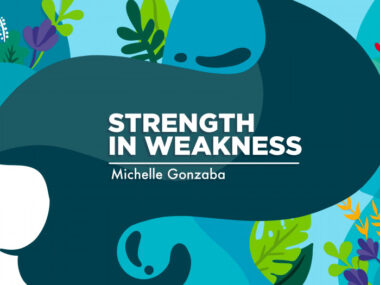Why empathy is important in a patient-provider relationship
I want to feel seen as a person, not just treated as a patient
Written by |

Living with myasthenia gravis (MG) tends to make one familiar with the world of medicine. Since my MG diagnosis in 2020, I’ve researched many different aspects of life with the disease. Along with the medical triumphs that have improved many patients’ lives, I’ve discovered that successful treatment requires an empathetic relationship between patients and doctors.
Lately, I’ve been thinking about a health crisis that greatly affected my childhood. It surprised me to realize how much those early years influenced my adulthood, and what’s especially strange is that it took so long for me to grasp this.
When I was 8 years old, I was diagnosed with a brain tumor and underwent two brain surgeries: one to remove the tumor, and one to reconstruct the right side of my skull. My neurosurgeon was known worldwide for his intelligence and expertise. He was second to none. Undoubtedly, he saved my life, and I will always be in his debt.
Yet something essential was missing from our relationship. It felt like he never truly saw me. I was a scared child, alone in a world of adult decisions and sterile hospital routines, and I wanted the grown-ups to hold me, to let me know that everything would be OK. I didn’t want people to be afraid of me because I was sick. I needed someone to see beyond the tubes, machines, and strange-sounding words. As a saying, often attributed to Theodore Roosevelt, goes: “People don’t care how much you know until they know how much you care.”
New York Times literary critic Anatole Broyard once wrote, “To the typical physician, my illness is a routine incident in his rounds, while for me, it’s the crisis of my life. I would feel better if I had a doctor who at least perceived this incongruity.”
When empathy is absent from the physician-patient relationship, lasting harm can be done. Unaddressed childhood medical trauma can lead to feelings of abandonment and mistrust. I know this because I lived it. Only after MG sidelined me five years ago did I begin to examine the medical trauma of my early years.
I began to see some connections between my childhood trauma and my adult life. When I chose a career, I knew it wouldn’t be in medicine. Still, I wanted to do something where I could help others develop empathy. I found this as a high school teacher. For 30 years, I tried to model for my students an empathetic way of viewing the world.
One year, a former student named me as her favorite teacher. Her stated reason for this was: “He never made you feel like an idiot. He respected you no matter what.” That young woman likely won’t remember much from my history classes, but I hope she’ll always remember what it was like to have someone view her through empathy’s prism.
When doctors treat patients not just as bodies but as people with fears, histories, and inner lives, they help heal more than the illness. In the end, healing isn’t just about surgeries or prescriptions. It’s about being seen and treated with dignity. We should honor science and the soul.
I will always wonder how my life would have been different without the early medical trauma. What if that 8-year-old boy hadn’t felt so invisible?
I can’t rewrite the story of that frightened child, but I have learned that dignity, kindness, and empathy are the most powerful medicines of all. Thank you, MG, for giving me the chance to learn this.
Note: Myasthenia Gravis News is strictly a news and information website about the disease. It does not provide medical advice, diagnosis, or treatment. This content is not intended to be a substitute for professional medical advice, diagnosis, or treatment. Always seek the advice of your physician or other qualified health provider with any questions you may have regarding a medical condition. Never disregard professional medical advice or delay in seeking it because of something you have read on this website. The opinions expressed in this column are not those of Myasthenia Gravis News or its parent company, Bionews, and are intended to spark discussion about issues pertaining to myasthenia gravis.



Leave a comment
Fill in the required fields to post. Your email address will not be published.